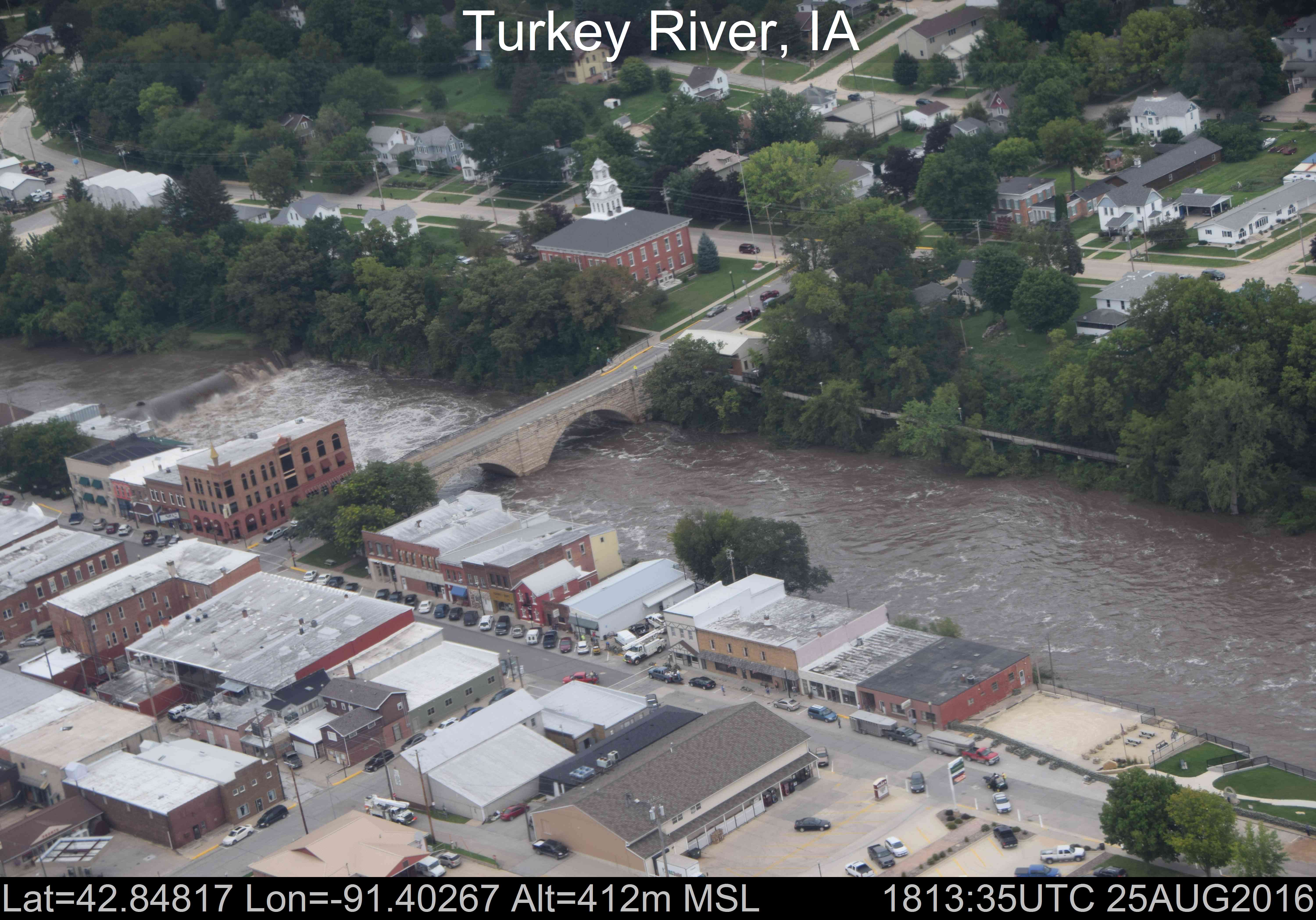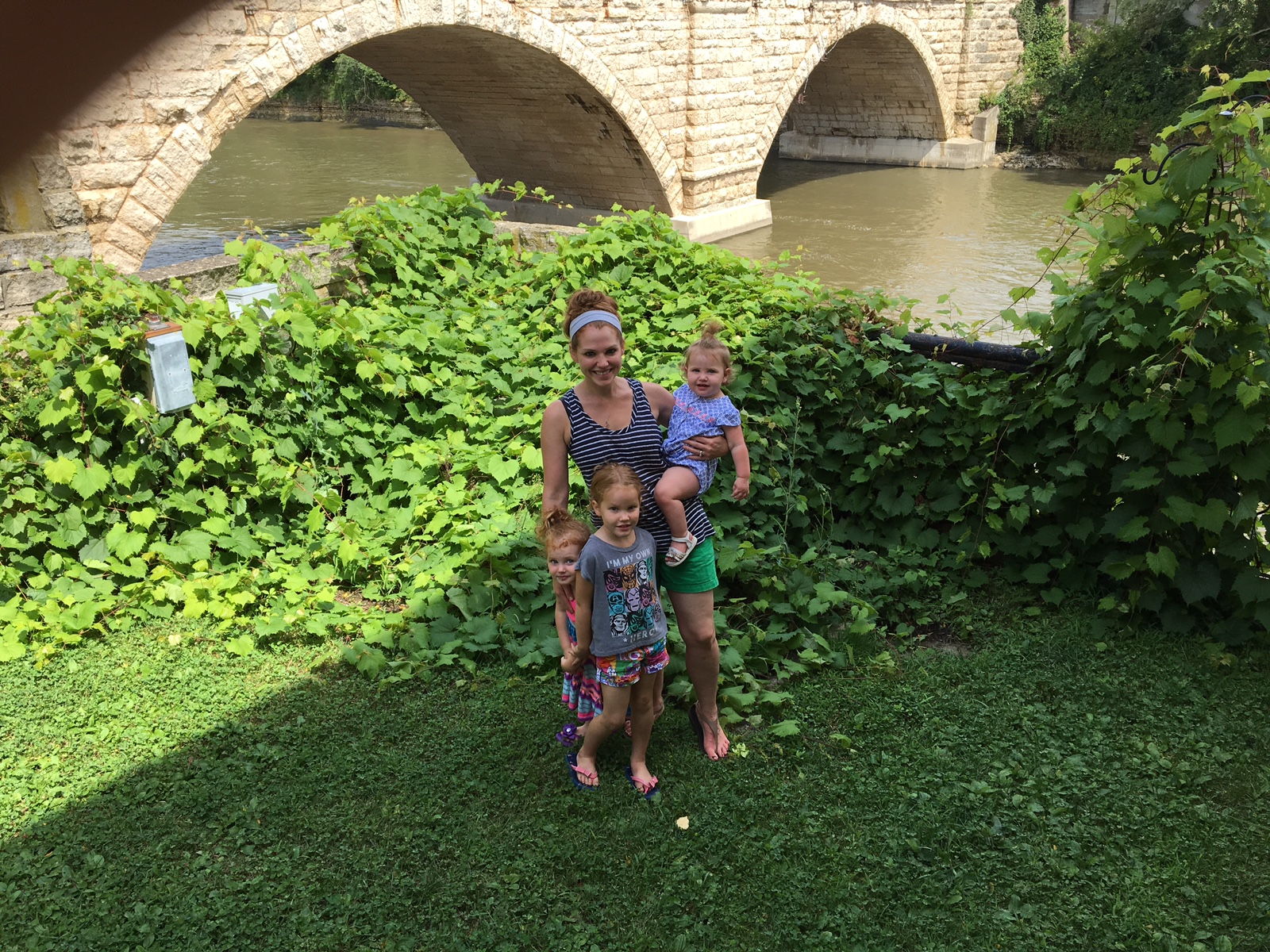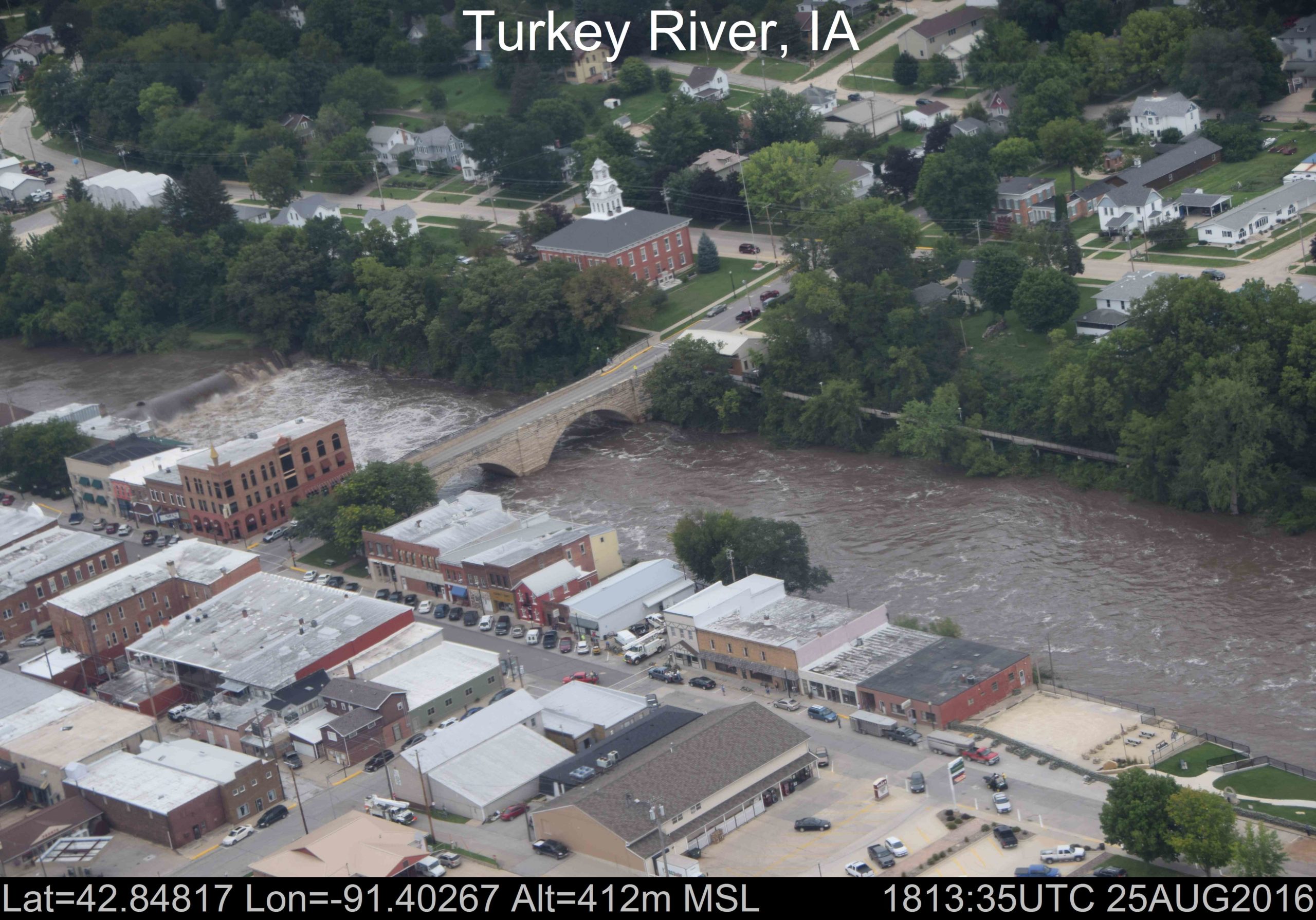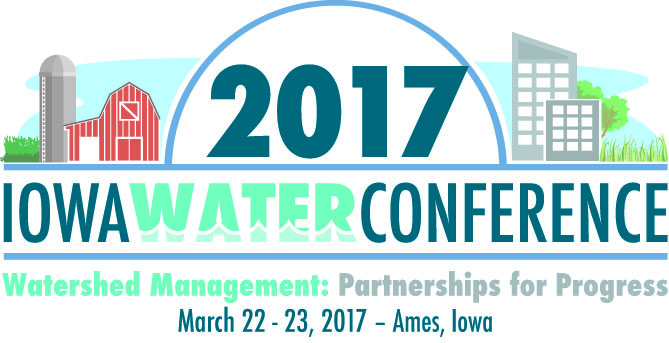From Melissa Miller, Iowa Water Center Associate Director
What a difference a week makes. Last Friday, my family and I made a lunch and relaxation stop in Elkader on our way to Wisconsin for a weekend getaway. My girls love water, so we walked over the Keystone Bridge for a good look.

Hana, 3, and May, 5 pose near the Turkey River in Elkader on 8/19/16.
Just a week later, Elkader and other Northeast Iowa residents are dealing with severe flooding from torrential downpours earlier in the week that dumped as much as 8″ of rain in some areas, causing damage to homes, businesses, and even killing one person swept away in the flash floods. Some residents had to evacuate their homes and take shelter elsewhere (including fish!). The water that makes these communities peaceful, beautiful places to live and visit can also pose severe challenges.

Flooding of the Turkey River in downtown Elkader as taken by NOAA’s National Operational Hydrologic Remote Sensing Center’s Airborne Snow Survey airplanes.
This storm is a solemn reminder of the power of water and the importance of studying it. Our seed grant RFP will be released soon, and this year we are partnering with other Water Resources Research Institutes in the Mississippi and Ohio River Basins to share knowledge so that we’re advancing our understanding together. In addition, the Iowa Watershed Approach has already begun work in communities to help address flood and water quality risks and increase community resiliency to events like the ones this week. Related to flooding, up-to-date flood information is available through the Iowa Flood Information System (IFIS).
IWC’s overarching goal is to improve management of water resources. “Management” might not be the best term, because in many cases, water (and nature) does what it will. There’s a parallel between “managing” water and “managing” children – no matter what you want out of it, the true nature of the water (and the child) will always rise up.

One of many attempts at a “nice” family picture at the Keystone Bridge. Getting kids to look at the camera with serene smiles can be as difficult as telling a river or a rain cloud exactly where to run or when to empty.

